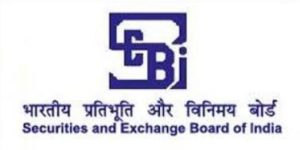Source: www.sebi.gov.in
The Government is regularly devising schemes that boost the Indian market. With the rise in the availability of resources and coming up of policies promoting ease to do business in India, the country is increasingly becoming a favoured destination for the growth and development of business. The fastest growing economy not only encourages progress of business in the nation but also makes it an attractive investment option. With a view to secure investment for the Indian business sector, the Government has been making efforts with the help of introduction of investor friendly policies.
Regulated facilitation
Governed under the provisions of the Securities and Exchange Board of India Act, 1992 (hereinafter referred to as the “SEBI Act”), the Securities and Exchange Board of India (hereinafter referred to as the “SEBI”) is the market regulator of India which aims to protect the interests of investors in securities and to promote the development of, and to regulate the securities market and for matters connected there with or incidental thereto. Being a quasi-legislative, quasi-judicial, and quasi-executive body, SEBI drafts legal framework, judicial pronouncements and effective enforcement procedures for the smooth transactions of the securities.
SEBI is working towards aiding investment in Indian securities market taking recourse to the measures some of which are listed below :[1]
- Lowering the total expense ratio for equity oriented mutual fund schemes 1.25% for close-ended and interval scheme and 1% for other schemes, while capping the fund at 2.25% for equity-oriented schemes and 2% for other schemes, thereby making it less expensive for investors to invest in mutual funds;
- Not settle offences through the consent mechanism if it views the issue as having market-wide impact, affects the integrity of the market or results in loss to investors;
- More time granted to the Foreign Portfolio Investors for complying with KYC norms in India as per the circular issued by SEBI dated April 10, 2018;
- SEBI, Reserve Bank of India and Central Board of Direct Taxes have introduced a single application form for registration for Foreign Portfolio Investors in order to enhance the operational flexibility while ease of access to Indian capital markets;
- Reduction of the time period for listing after initial public offering to 3 days which was earlier a time frame of 6 days, thereby freeing up the locked investor funds faster so as to benefit both issuers as well as investors;
- Offering a more secured platform for payments, the public issue process may be introduced by way of the use of Unified Payment Interface with facility of blocking the funds as a new payment mechanism for retail investor applications submitted through intermediaries;
- Approval of operationalisation of the budget announcement mandating large corporates to meet one-fourth of their financing needs through debt instruments;
- Eligible foreign entities permitting foreign entities shall now be permitted to have exposure to Indian commodity markets;[2]
- Rules for reclassification of promoters have been changed. Promoters seeking reclassification and persons related to them should not hold more than 10% of the total voting power or exercise control over the listed entity or have special rights in the company;
- Restrictions shall now be imposed on fund raising through various share sales or making an open offer for Fugitive Economic Offenders;
- Interoperability of clearing corporations has now been permitted helping the market participants to consolidate their clearings and settle payment functions at a single clearing house thus reducing the effective trading cost for the investors.
With the objective of maximizing the investments in the Indian markets, SEBI has formulated investment guidelines that will be economical and favoured by the investors.
[1]https://economictimes.indiatimes.com/mf/mf-news/sebi-cuts-mutual-fund-fees-bats-for-small-investors/articleshow/65866171.cms
[2]https://timesofindia.indiatimes.com/business/india-business/now-fpis-need-to-fill-only-one-form-for-registration-bank-a/c-demat-and-pan/articleshow/65549430.cms


